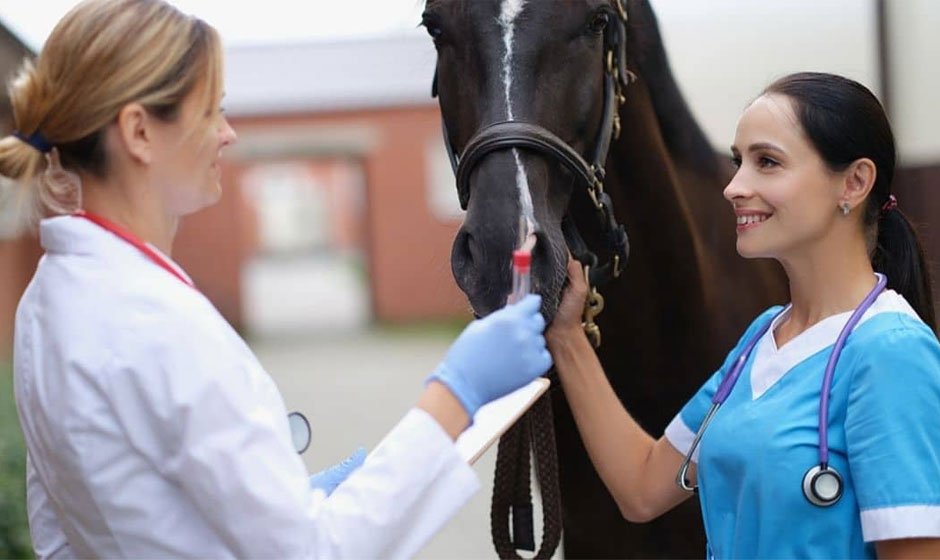Educational debt following graduation can be overwhelming for recently graduated veterinarians. A financial burden requires careful consideration and planning to avoid potential economic challenges. A potential solution to ease some of this financial strain is disability insurance for recently graduated veterinarians. This type of insurance provides a safety net in case of unexpected circumstances or accidents. Here is an overview of disability insurance and why it may be a wise investment for veterinarians:
What Is Disability Insurance for Veterinarians?
Disability insurance for veterinarians is a coverage that provides income protection in case the insured individual becomes disabled and can no longer work. This type of insurance is designed to replace a portion of your income when you become disabled due to an illness or injury.
As veterinarians often work with animals, they may be at risk of injuries or illnesses that can cause disabilities. This can significantly impact their ability to continue practicing their profession and earning an income. There are various types of disability insurance policies available for veterinarians, such as short-term and long-term disability insurance.
Short-term Disability Insurance
The duration of coverage varies by policy but typically ranges from a few weeks up to a year. The exact time you can receive benefits depends on the specifics of your policy and the nature of your disability. Short-term disability insurance usually begins after you’ve used up your sick leave. The cost of premiums for short-term disability insurance depends on several factors, including your occupation, age, health status, and the policy’s specific terms.
Long-term Disability Insurance
Long-term disability insurance is a type of insurance policy that provides income protection for a prolonged period due to illness or injury. Unlike short-term disability insurance, long-term disability insurance may sometimes provide benefits for several years. The exact duration depends on the specifics of your policy. The elimination period is generally more extended for long-term disability insurance than short-term disability insurance.
How Does Disability Insurance Work?
Disability insurance works by providing a percentage of your lost income if you become disabled and cannot work. This percentage varies between policies but covers a certain percentage of your pre-disability income. Some policies may also cap the maximum amount you can receive per month. The benefits are typically paid out after an elimination period, which is a waiting period before receiving benefits.
Why Should Recent Graduates Consider Disability Insurance?
As recent graduates, you may be in the early stages of your career and may not have significant savings or financial stability yet. If you become disabled due to an illness or injury, disability insurance can provide security for your income while you recover. It can also help cover medical expenses associated with your disability. Veterinarians often have physically demanding jobs, and accidents may happen. If you cannot work due to a disability, your policy will provide a portion of your salary to help cover expenses such as rent or mortgage, groceries, and other bills.
What Factors Affect Disability Insurance Premiums?
Disability insurance for recently graduated veterinarians can vary in cost based on several factors. The most common factors are age, health, occupation, and the coverage needed. The younger you are when you purchase a policy, the lower your premiums may be. Your overall health and any pre-existing conditions may also impact your premiums. As veterinarians are considered high-risk occupations due to potential physical demands and risks associated with the job, premiums may be higher. The amount of coverage you choose will also affect your premiums.
What Should I Look for in a Disability Insurance Policy?
Disability insurance for graduated veterinarians focuses on helping you maintain financial stability in the event of a disability. Some policies only cover work-related accidents or injuries, while others may cover any disability. Read and understand the terms and conditions of the policy before committing to a plan. Look for policies that offer a reasonable monthly benefit and consider any potential limitations or exclusions.
Boost Your Financial Security With Disability Insurance for Recently Graduated Veterinarians
As a recent veterinary graduate, you may have student loans, mortgage payments, or other financial commitments. Disability insurance for graduated veterinarians can help protect your income and financial stability from unforeseen circumstances. As you start your career, consider investing in this type of insurance to improve your financial security.

